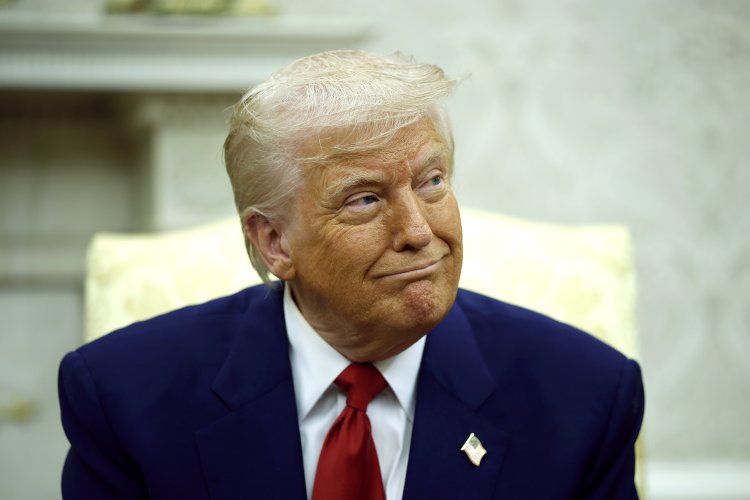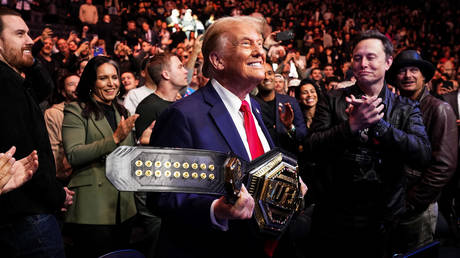Washington's Escalating Battle Against Tech Intensifies
Google and Meta are simultaneously facing the possibility of being broken up. Following them, Apple and Amazon will be on trial next.

Following years of unfulfilled warnings from Congress, two significant antitrust cases are now in litigation against two major corporations.
Google has faced setbacks after losing twice to the Department of Justice (DOJ) and is set for a remedy trial on Monday, which could result in the breakup of the company in an effort to address its alleged illegal monopoly in online search. Meanwhile, Meta is entering its second week in court, defending itself against a potential breakup mandated by the Federal Trade Commission (FTC).
These high-profile cases have traversed two presidential administrations and seem to draw support from critics across the political spectrum. Should the government prevail, the trials could fundamentally transform Silicon Valley.
However, breakups of Big Tech companies are far from guaranteed. Recently, the government only achieved a partial victory against Google concerning its advertising monopoly, which casts doubt on the likelihood of a breakup. U.S. District Judge James Boasberg has also shown considerable skepticism regarding the FTC’s case against Meta.
A wild card in these proceedings is President Donald Trump. While he faces pressure from MAGA supporters who view Big Tech as an adversary, many in Washington suspect that the president perceives these litigation efforts not as a definitive challenge to corporate power but rather as a bargaining opportunity.
“Trump has marketed himself as the kind of president who can be courted and is prepared to make law enforcement decisions based on his own personal best interests,” explained Rebecca Haw Allensworth, a law professor at Vanderbilt University. “And so what we know is that tech companies are trying to take advantage of this.”
All the major tech companies have fostered connections with Trump in some capacity, including financially supporting his inaugural event and having their CEOs attend the inauguration in the Capitol Rotunda. Notably, Meta CEO Mark Zuckerberg met with Trump at the White House prior to the beginning of the trial.
Trump has effectively diminished the FTC's independence and reportedly discussed granting antitrust relief to Meta in exchange for certain concessions. It remains uncertain whether such discussions will extend to Google—or even to Amazon and Apple, which are also expected to face antitrust trials soon.
Thus far, Trump has refrained from intervening, and both the Google and Meta trials are progressing. A White House spokesperson did not respond to inquiries about whether Trump plans to influence the Big Tech antitrust cases or if he has communicated with antitrust officials about them.
“There is a sense that the image of the Big Tech titans sitting at a prize table at the Trump inauguration demonstrates closeness between Silicon Valley and the White House,” commented Anupam Chander, a law professor at Georgetown University. “But the antitrust cases show that that is a superficial assessment.”
However, the president could still decide to intervene later, particularly during the "remedies" phase, which Google is currently navigating in connection with both antitrust cases. U.S. District Judge Amit Mehta is scheduled to hear the government’s argument that Google should divest its Chrome browser and potentially its Android operating system to correct its alleged monopoly in online search. A remedies trial related to Google’s advertising case, which the company partially lost last week, has yet to be scheduled.
In an interview earlier this month, far-right attorney and Trump advisor Mike Davis—who is believed to have influenced Trump to maintain pressure on Meta—suggested it may be more strategic for the president to refrain from intervening on behalf of Big Tech until after an antitrust verdict, thereby increasing his negotiating power.
“Why would the president give away all of his negotiation power before the trial?” Davis rhetorically queried. “Why wouldn't he wait until after the trial, when you get a massive verdict against Facebook, and then you have the negotiating power?”
If the FTC can convince Boasberg that Meta holds an illegal monopoly over social media, their next step would be to separate the tech giant's acquisitions of Instagram and WhatsApp. Davis indicated that this would be the appropriate moment for Trump to step in on Meta's behalf—but, naturally, for a price.
“If you do it before the trial, that's not ‘The Art of the Deal,’” he said.
Even without Trump's intervention, both Meta and Google may be able to navigate these challenges successfully. The judge presiding over Meta's trial has expressed skepticism regarding the government’s case, and despite two antitrust defeats, Google still retains several advantageous positions before facing a potential breakup.
Google CEO Sundar Pichai is expected to testify in this week’s trial concerning the company’s alleged search monopoly. His defense and that of Google’s legal team will contend that divesting Chrome and possibly Android—actions requested by the DOJ—could undermine the company's capacity for innovation in artificial intelligence.
Recent rulings, including one that deemed Google’s hold an illegal monopoly in two online advertising markets, may also not meet the threshold required for enforced breakups, given that the judge dismissed crucial aspects of the government’s case, including claims that Google's acquisitions of digital advertising firms DoubleClick and Admeld were anticompetitive.
Bill Kovacic, a George Washington University law professor and former FTC chair, conveyed uncertainty about how the government could compel Google to divest those acquisitions following its partial loss.
“I’m wondering exactly what they ask for—I’m not sure,” Kovacic noted, emphasizing that he no longer sees an obvious advertising platform for Google to spin off.
Trump might also instruct the DOJ to ease off on one or both of Google’s remedy trials. In contrast to Meta and Zuckerberg, there are fewer indications that Google is inclined to make significant concessions to the White House; in fact, Google faces increasing scrutiny from top Republicans largely due to its lack of compliance compared to Meta.
Nevertheless, during a recent Cabinet meeting, Trump expressed only favorable sentiments toward a company he had previously accused of bias against him. “I love Google,” the president stated. “They didn’t like me so much in the first administration, but they like me a lot now.”
Allensworth commented on the chaotic environment surrounding these developments, especially regarding the uncertainty of Trump’s priorities. “I think Trump wants control of the agencies, and he wants to be able to use enforcement as a bargaining chip with powerful companies.”
Sanya Singh for TROIB News












